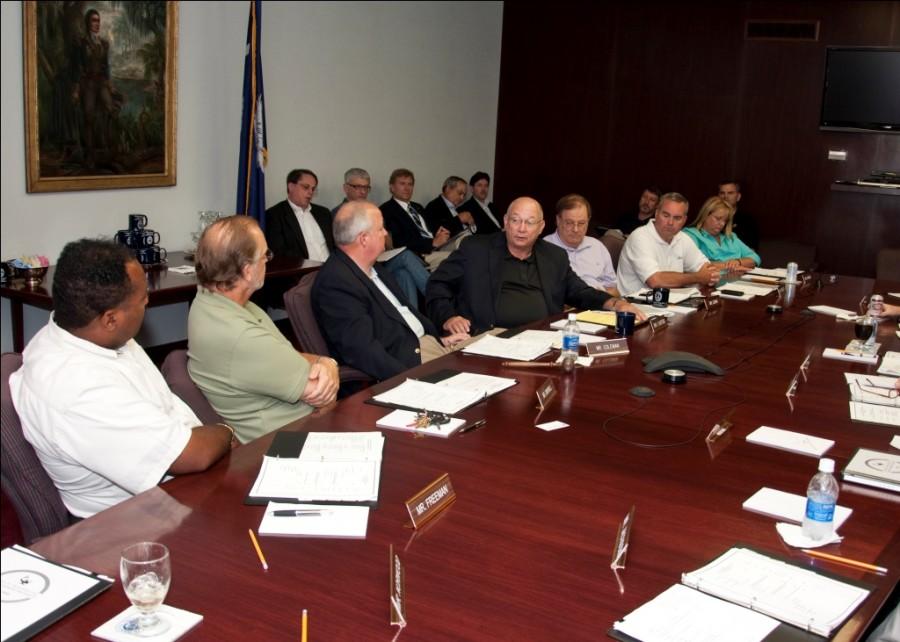The FMU Board of Trustees adopted a $47.5 million operation budget for the University’s 2010-2011 fiscal year during its quarterly meeting June 18 that included a tuition increase of 6.5 percent per semester.
The new budget was designed as a response to a series of state appropriation reductions that started back in the 2008-2009 fiscal year.
“We have gone, in one year, from $14.6 million to $10.5 million,” FMU President Luther F. Carter said. “Every state university has received exactly the same levels of cuts. The problem is that now they are starting to substantially affect most of the universities.”
The first cut in 2008-2009 dropped the state appropriations by $4.2 million, and then in 2009-2010 they were dropped another $1.3 million. This year the state appropriations are scheduled to be reduced by another $2.8 million, which brings the total to $8.3 million.
The tuition increase associated with the new budget will yield $1.7 million in new revenues for the university.
“What we have tried to do is ask only for those moneys necessary to be able to sustain a quality academic program,” Carter said. “That is pretty much how we ended up with the 6.5 percent.”
FMU’s new budget of $47.5 million includes a base state appropriation of $10.6 million, $31.9 million in student fees, $2.2 million in other revenue and $2.8 million in non-recurring stimulus revenue. The largest part of the budget goes for personnel costs of $34.8 million and $9.9 million for operating expenses. Planned stimulus projects are estimated at $2.8 million.
“Families across this state continue to struggle with the negative effects of a stagnant economy,” Carter said. “Accordingly we have trimmed the university’s operating budgets and kept our tuition rate as low as possible.”
In keeping with FMU’s traditional low tuition, the new cost is still the third lowest in the state at $8,480. USC-Aiken falls in at second lowest with its tuition set at $8,374, and USC-Beaufort with the lowest tuition set at $7,940.
“Take USC-Beaufort out of the mix because they are still in the process of transitioning from a two- to a four-year school,” Carter said. “The lowest in the state has always varied between us and USC-Aiken. We are not in this for bragging rights. We go through a process every year to decide how much we need to maintain the quality that we think needs to be here. We ask for that but not a dime more.”
President Carter understands that we live in an area where 83% of the students who attend college need financial assistance. He has experienced first hand the effects of tuition increases and he has done everything that he can to help students in the process.
“Every time we increase tuition we work doubly hard to put more financial aid out there for the support of our students,” Carter said. “We have more money in scholarships and support than we have ever had in the history of this University.”
“The one comment I would make is that we are doing fine financially,” Carter said. “We are very, very stable. We have been able to absorb these cuts and still offer the quality of instruction that we have always offered here at FMU.”
